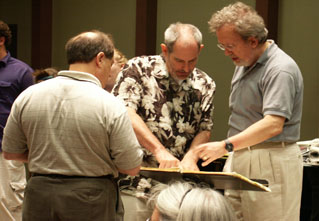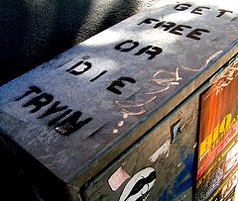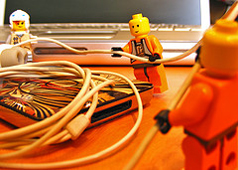In an article entitled Yo-Yo Ma and Performance in the April, 2012, issue of the American Organist, Christian Lane writes:
All to often we [performing artists] forget to listen and fail to connect. We get trapped, both literally and metaphorically, behind our instruments. We get lost amid our conflicting roles as vested spiritual leader, teacher, and performer. We become consumed by thoughtful desires to be as true as possible to performance practice – or conversely, we flounder in efforts to create a voice intentionally devoid of “performance practice.” We are sometimes hindered by our curious personalities, and most egregious of all, we too often operate on misguided notions that one’s all-too-human emotions, one’s gut, one’s naturally human physicality, and one’s profoundly individual artistic voice are somehow undesirable components of proper music preparation and refined performance. We get trapped, and we fail to listen. We fail to smile or grimace. We fail to connect. For each of these traps we encounter, we remove an opportunity to…connect with our listeners.
There is so much to unpack here, and I encourage you to do so in the comments below.
For now, though, let me just focus on one thing: the willingness to be human (as in: show emotion, have a “personality,” remove the “mask,” or however else you want to define it) as a musician in a worship service. There is a time and place for everything, my mother used to say, and, in worship it is particularly true. Most of the time, as a “performer,” you want to remove any barriers between the One who is being encountered during a worship service, and the ones doing the encountering. And yet, “Jesus wept.”
If, as a church musician, one can get the notes and the performance practice out of the way and get directly to the music, there are human emotions involved. And suppressing those emotions means you are not completely involved in making music. I’m here to say from experience that “losing yourself” in the emotional moment can get you into trouble if you abandon yourself to the emotion of the moment. But losing yourself to emotional abandonment of self within the process of music making is part of the process of full commitment to speaking to listeners about everything in a particular piece of music. It is there to be found…and being willing to “go deep” to find it is one of the traits that separates a “world class” musician from those who can’t – or don’t – make that breakthrough.
OK… have at it in the comments…(and you might want to read this as well…)
Ipod shuffle status (What is this?): 3889 (Adagio for Strings – Samuel Barber, performed by a choir directed by Robert Shaw) of 7875
…
Get my EBook The Choir in Modern Worship











{ 2 comments… read them below or add one }
My thoughts, exactly….especially about allowing yourself to go deep, emotionally, within the bounds of good music-making. Once the notes are in place, for each musician, the “group” can allow the music to be the messenger, and receive the message along with the congregation.
well said…thanks
You must log in to post a comment.